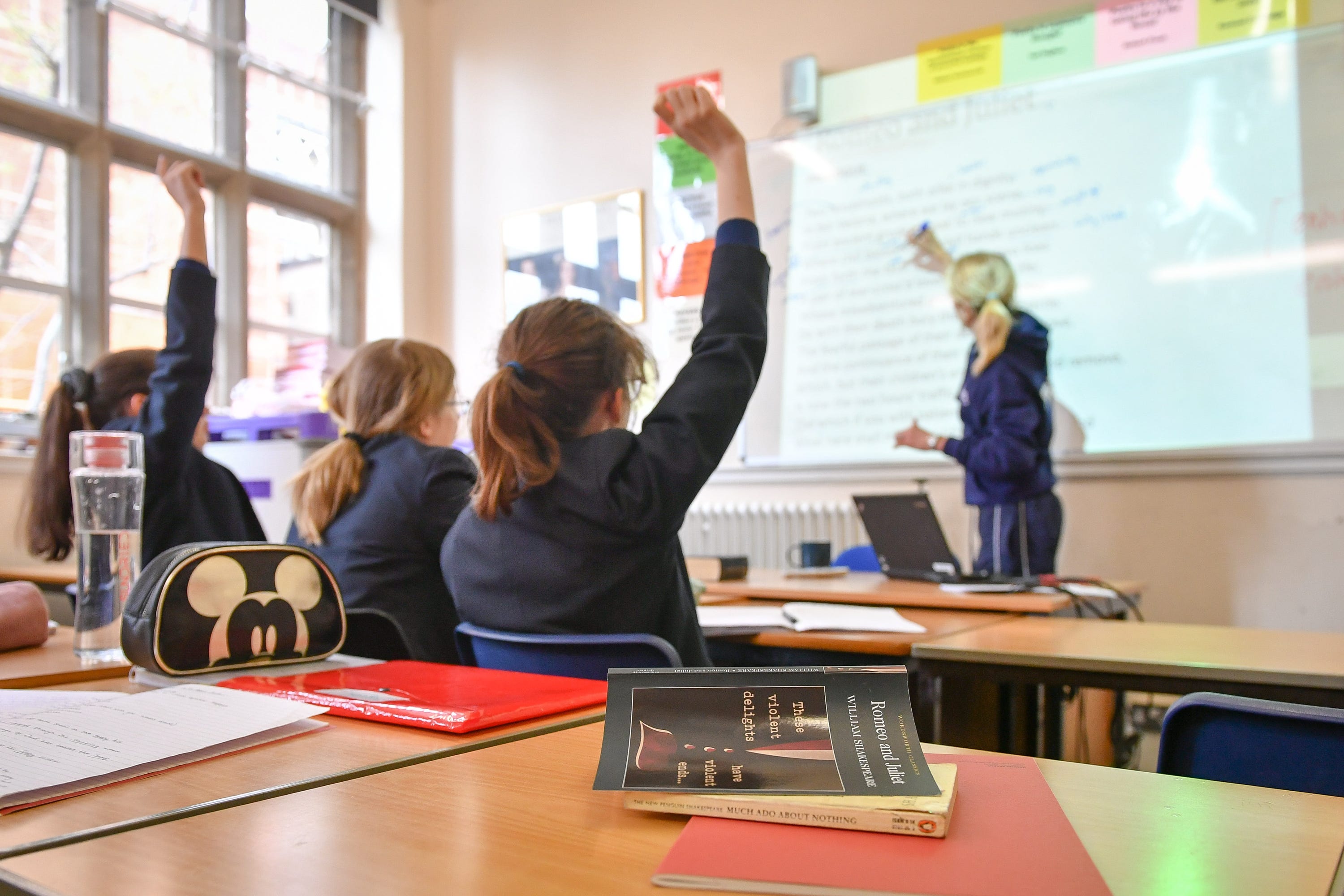Schools lost track of ‘great many’ young people during pandemic, inquiry hears
The Scottish Covid-19 Inquiry is hearing evidence about the impact of the virus on education and early years learning.

Your support helps us to tell the story
From reproductive rights to climate change to Big Tech, The Independent is on the ground when the story is developing. Whether it's investigating the financials of Elon Musk's pro-Trump PAC or producing our latest documentary, 'The A Word', which shines a light on the American women fighting for reproductive rights, we know how important it is to parse out the facts from the messaging.
At such a critical moment in US history, we need reporters on the ground. Your donation allows us to keep sending journalists to speak to both sides of the story.
The Independent is trusted by Americans across the entire political spectrum. And unlike many other quality news outlets, we choose not to lock Americans out of our reporting and analysis with paywalls. We believe quality journalism should be available to everyone, paid for by those who can afford it.
Your support makes all the difference.Schools did not know where “a great many” young people were or what they were doing during the Covid-19 pandemic, an inquiry has heard.
The Scottish Covid-19 Inquiry heard on Wednesday that children not attending school in person during the pandemic made it much harder for teachers and other staff to perform their “social care” role, in which they identified pupils experiencing problems outside school and put support in place.
Graham Hutton, general secretary of School Leaders Scotland (SLS), told the inquiry: “One of the advantages of the school was that young people came to school, they were in the building.”
He continued: “Hence, there was a point of contact there. If there was a concern, then case meetings would be set up, parental visits would take place, various other agencies would be contacted, and we would start to look at working around the child.
“That work started to fall away as soon as you could not get physical contact with people who were out there.”
Jim Thewliss, retired SLS general secretary, echoed this, saying that if they were not at school then young people were out in the community where they might be experiencing problems.
We didn't know for a great many young people where they were and what they were doing
He said: “If they were in school for five-and-a-half hours a day, we knew where they were, and we knew what to do, and we knew that we could support them.
“It became a huge, huge challenge, and we didn’t know for a great many young people where they were and what they were doing.”
Mr Hutton also described a number of ongoing negative effects of the pandemic on families, in relation to the behaviour and attendance of young people, and a decline in parental engagement with schools.
He explained some young people had stopped attending school altogether, or were “truanting within the school” by refusing to go to classes and going round the building and disrupting lessons.
“Even in the best schools,” he said, “if you want to call them that, there’s usually not been a lot of discipline issues, these have still arisen, and the young people have been turned off by the curriculum and been turned off by their experiences and the gaps in their knowledge that they are not playing ball with.”
The challenge, he added, was to “make sure that the curriculum we are offering our young people meets their needs and suits their needs.”
He also said since the pandemic there had also been an increase in “low level indiscipline” at schools, due to pupils not adjusting back into a routine of school attendance.
Young people had been left in many ways to their own devices. They were lonely. They had a lack of social involvement
“Young people had been left in many ways to their own devices. They were lonely. They had a lack of social involvement. And therefore, when we came back into a routine, that was almost anathema to some,” he said.
He continued: “The vast majority of young people fell back into school very easily. A large majority were absolutely relieved to get back to school.”
He added: “There’s always been a small minority in the schools whom you have to coax and put more support in. And that grew in many ways as a result of the pandemic.”
He said schools were also experiencing more “conflict” with parents over issues with the attendance and behaviour of children, with parents not “seeing anything wrong with that” and taking their child’s point of view.
Mr Thewliss concluded his evidence by saying the pandemic had shown there needed to be a fundamental change in how education is delivered in Scotland, saying a model of education dating back to the Education Act of 1740 was not fit for the 21st century.
“We cannot carry on doing what we’re doing just now in the way in which we’re doing it,” he said.
“If we meet another pandemic, we may be slightly better prepared, but we will not be as prepared as we could be.
“And any good [that has] come out of this, what it has done, is made us look at, understand and reflect upon the quality, standards, effectiveness, relevance of education that we are providing in Scotland just now.”
The Scottish Covid-19 Inquiry is hearing evidence about the impact of the virus on education and early years learning.
The inquiry before Lord Brodie continues.